Cranberries are common berries on several continents worldwide. North America and Canada grow most cranberries. In those regions, cranberries are common fare. These areas are environmentally suited for growing cranberries. Cranberries are woody, low-growing vines. The fruit this plant produces may vary in size and color. That is why cranberries can be red, while those not fully matured fruits are pale pink or white.
You can buy cranberries as fresh fruit, dried fruit, and in juice form, teas, or extract in pills. It is used in dishes and sauces as well as in baked goods. Only a small fraction of U.S. cranberries enter the market fresh; most have their tartness well hidden in processed products like juice, sauce, and dried fruit.

Cranberries come in species. You can get the American and European species of cranberries that are vitamin-rich. Native Americans consumed the red fruit as food and natural medicine. The health value of cranberries was discovered by early European colonists in North America, who discovered its utility as a medicine and food product. Given the favorable health potential of cranberries that have been widely investigated for their positive effects on human health, cranberry supplements have substantially gained popularity in recent decades. So, today, we will examine cranberries' health benefits. If interested, read on.
Cranberry is the fruit of a plant of the Ericaceae![]() family. This is one of the important economic fruits of North America, which produces edible red flesh. Cranberries of another species are cultivated in Europe. The fruit of the European plant may vary in nutritional content. But all cranberry varieties are broadly regarded as healthful fruit. Eating cranberries will fight many diseases. To see how easily you can make your health natural.
family. This is one of the important economic fruits of North America, which produces edible red flesh. Cranberries of another species are cultivated in Europe. The fruit of the European plant may vary in nutritional content. But all cranberry varieties are broadly regarded as healthful fruit. Eating cranberries will fight many diseases. To see how easily you can make your health natural.
Numerous fruits are attributed to antioxidant effects and are used in the diet. Cranberries are also one of them. Cranberries owe their antioxidant activity to phytochemicals that possess free radical-scavenging ability. Drinking cranberry juice has been studied to demonstrate radical scavenging abilities. Cranberry extracts are also available in supplement form to lower free radical damage. By having them, we enhance the body to protect against various dangerous agents.
The anti-inflammatory effect of the fruit is another key feature. This is also what cranberries can promise you. It is certainly worth protecting against since, as you know, inflammation is the root of most diseases. Due to their health ingredient-rich nature, cranberry juice and some cranberry supplements exhibit prospective anti-inflammatory properties, as confirmed by several studies. For example, the researchers observed improvement in arthritis![]() with cranberry juice treatment. Cranberry extract powder also suppressed the expression of inflammatory marker genes. The findings provide solid scientific support that cranberry consumption may benefit health.
with cranberry juice treatment. Cranberry extract powder also suppressed the expression of inflammatory marker genes. The findings provide solid scientific support that cranberry consumption may benefit health.
Cranberry lovers may enjoy another health benefit from this superfood. Based on the review of individual studies, antimicrobial potential appears to be present with these fruits. Bactericidal activity with some other properties is mentioned. Biofilm, a continuous layer of bacteria that is very hard to remove once formed, can be implicated in chronic and recurrent bacterial infections, and cranberry treatment also significantly reduces biofilm formation. This is where cranberries can be of great help.
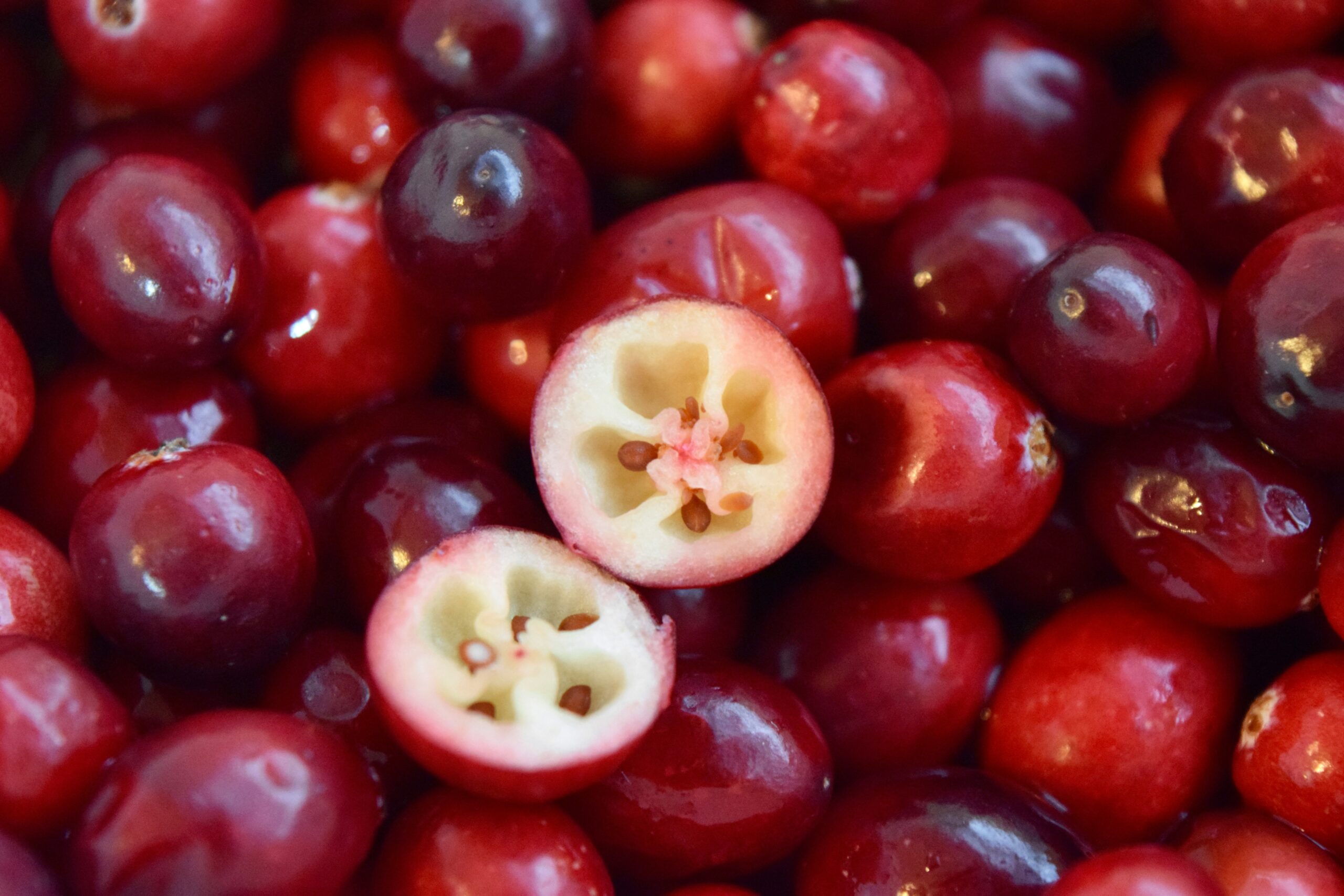
Registered cold-pressed cranberry juice: the type of registered product or cranberry juice cocktail that has shown efficacy against S. aureus![]() and E. coli
and E. coli![]() and is well characterized. Experts found that cranberry juice has effects quite similar to antibiotics. Cranberries demonstrated a significant potential for use as a supplementary agent for oral care, given their interesting antimicrobial activity, as proved by many studies. Cranberries may also be useful for other diseases, including urinary tract infections
and is well characterized. Experts found that cranberry juice has effects quite similar to antibiotics. Cranberries demonstrated a significant potential for use as a supplementary agent for oral care, given their interesting antimicrobial activity, as proved by many studies. Cranberries may also be useful for other diseases, including urinary tract infections![]() , in this regard.
, in this regard.
The liver is a delicate organ affected by many factors, including an unhealthy diet or medicine. Scientists have additionally mentioned that cranberry might assist in protecting the liver. Cranberry extract administered orally resulted in statistically significant changes in inflammatory markers and histopathological findings. Thus, consumption of the cranberry extract at an optimum dose might possess a therapeutic role in fatty liver![]() . So, especially for those with liver problems, they can consume cranberries in their diet after getting advice from their doctor.
. So, especially for those with liver problems, they can consume cranberries in their diet after getting advice from their doctor.
The other news is cranberries are useful for hypertension![]() and cardiovascular disease. Cranberry juice has been shown in some studies to lower blood pressure. This could have a therapeutic impact on high blood pressure patients. Cranberry products may reduce cardiovascular risk as the fruit counters a condition group in which structural changes arise in the heart muscle. The cardiovascular effect of cranberry can be summarized in the following way: Prevention of several heart diseases and hypertension.
and cardiovascular disease. Cranberry juice has been shown in some studies to lower blood pressure. This could have a therapeutic impact on high blood pressure patients. Cranberry products may reduce cardiovascular risk as the fruit counters a condition group in which structural changes arise in the heart muscle. The cardiovascular effect of cranberry can be summarized in the following way: Prevention of several heart diseases and hypertension.
Cranberries offer another advantage concerning the cerebrum. Multiple studies show that cranberry prevents other types of disease, repeated concerning neurodegeneration disease. It showed cranberry extract to be effective on body paralysis caused by toxicity in an Alzheimer's disease![]() model.
model.
It has also been stated that long-term administration of freeze-dried cranberry powder to older people has a positive effect on memory and improved neuronal activity—all thanks to the magical properties of cranberries. The antioxidants found in cranberries are beneficial for cognitive health. As a result, a cranberry-rich diet contributes to better brain function and lowers the risk of many diseases.
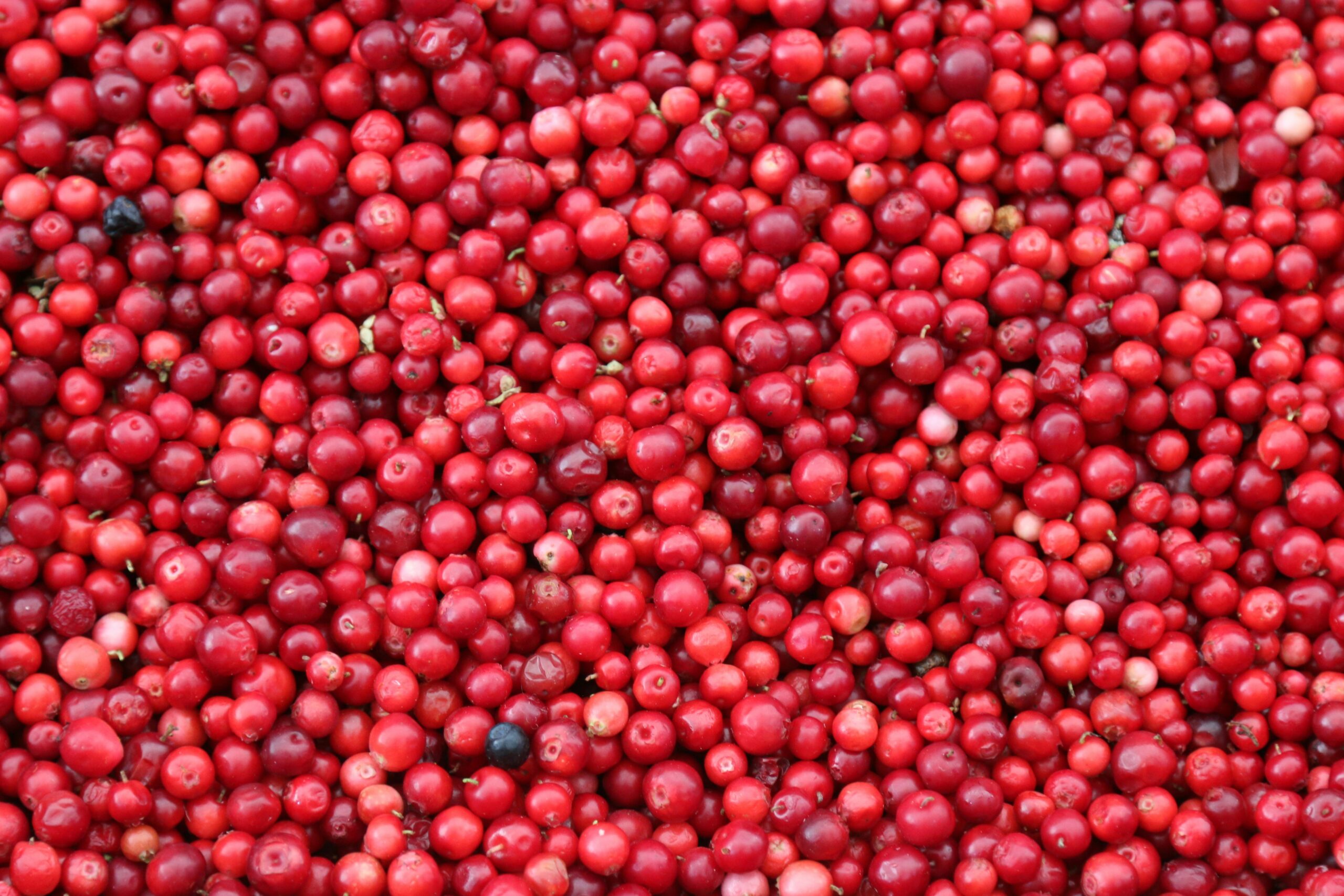
Cancers are some of the scariest diseases we have. They evoke images of a long road of treatment and suffering. This is why scientists are always searching for cancer prevention methods. There is great emphasis on healthy eating and specific foods. Cranberries are also said to counteract the uncontrolled proliferation of cancer cells. Cranberry extract has been shown to exert anticancer effects against resistant esophageal adenocarcinoma cells. The researchers also found that cranberry extract may be beneficial and work against acute myeloid leukemia cells.
And then another cranberry benefit will have people with diabetes smiling. New evidence suggests that cranberries could help fight against diabetes. It helps to regulate blood sugar levels from the fruits. The bioactive components of cranberry may help maintain sugar in the body, which will help in the case of diabetic and high-risk patients. The potential of cranberries for blood sugar control and insulin sensitivity might be encouraging. Many newer biological and natural therapies for metabolic disease are being discovered. However, remember that diet should be complementary rather than a substitute treatment.
Those with gastrointestinal disorders may be able to receive benefits from cranberry's fiber content and anti-inflammatory properties. It increases the once-a-day passage of feces and reduces irritation. Cranberries contain a lot of fiber but mostly in their dried form. Dried fruit can be a healthy food, but realize that dried cranberries contain more calories than fresh food. However, if you have a regular problem with constipation![]() , you should eat cranberries to help your digestion. Cranberry juice at heavy meal times is a second step you may take, taking into account your doctor does not prohibit the fruit.
, you should eat cranberries to help your digestion. Cranberry juice at heavy meal times is a second step you may take, taking into account your doctor does not prohibit the fruit.
Cranberries contain antioxidants and different bioactive compounds that assist with skin conditions if they combat oxidative stress and inflammation. Cranberries are frequently found in anti-aging cosmetics for mature skin. They slow down the aging processes of the tissue and regain its lost elasticity and firmness, soothing the skin and restoring tension. Cranberries also have antibacterial and antifungal properties and benefit the skin with a protective action.
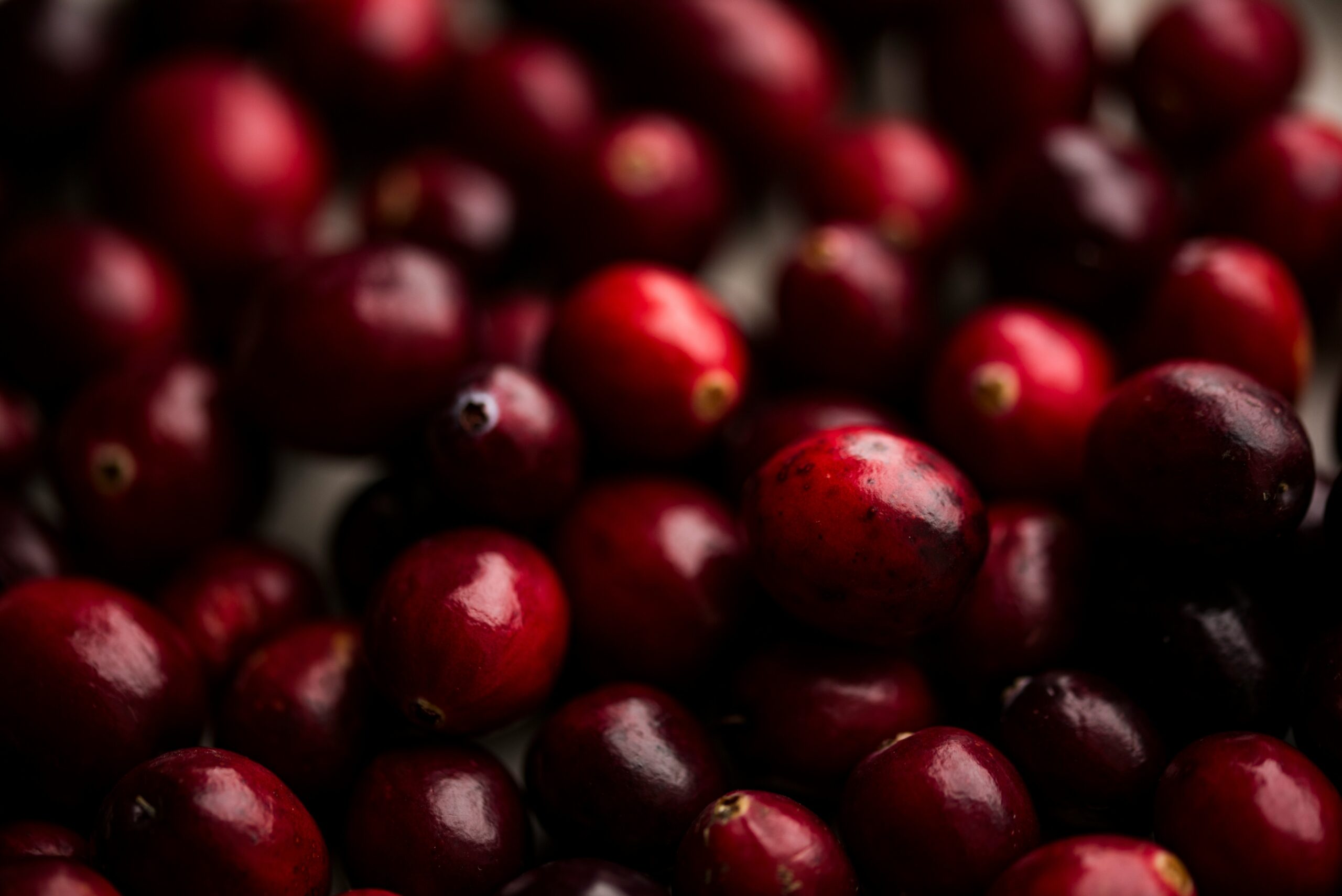
Cranberries are much more than crimson spheres that tantalize the taste buds with a dual assault of sweet and sour. They are also an amazing nutrient and health element treasure. Once a traditional remedy revered by indigenous cultures for thousands of years, cranberries are currently gaining attention in research and entering the healthful eating spotlight.
Cranberries can change in nutrition depending on how they are served. It is seldom eaten fresh, as the fruit is eaten after being processed. Cranberry fresh contains about 87-90% water![]() , a type of juicy fruit. They are also low-calorie, being 46 kcal in 100 grams
, a type of juicy fruit. They are also low-calorie, being 46 kcal in 100 grams![]() . Cranberries are indeed made out of carbohydrates and trace levels of protein and fat, which are among the basic ingredients of foods. On top of that, they also include a healthy dose of fiber. If you want the lowdown on what goes into cranberries, read on.
. Cranberries are indeed made out of carbohydrates and trace levels of protein and fat, which are among the basic ingredients of foods. On top of that, they also include a healthy dose of fiber. If you want the lowdown on what goes into cranberries, read on.
Everyone knows that vitamins are tiny little blocks that play a major role in health. Cranberries share vitamin amounts well compared to the fruit, specifically inside the flesh, vitamin C. You may have heard about this element for its antioxidant activities. Cranberries also contain vitamin A along with B vitamins. This amazing fruit is also a source of vitamins E and K. These are a broad spectrum of vitamins that can benefit overall health.
Cranberries are also sources of minerals, among others. It is another of the important chemical compounds you might already know about. Cranberry supplied us with a number of the minerals we wanted. We have potassium and magnesium, both essential on a physiological level, in the red flesh. Cranberries are also a great source of minerals good for bones, including calcium and manganese. Thus, we can consume cranberries and be free from a shortage of these minerals.
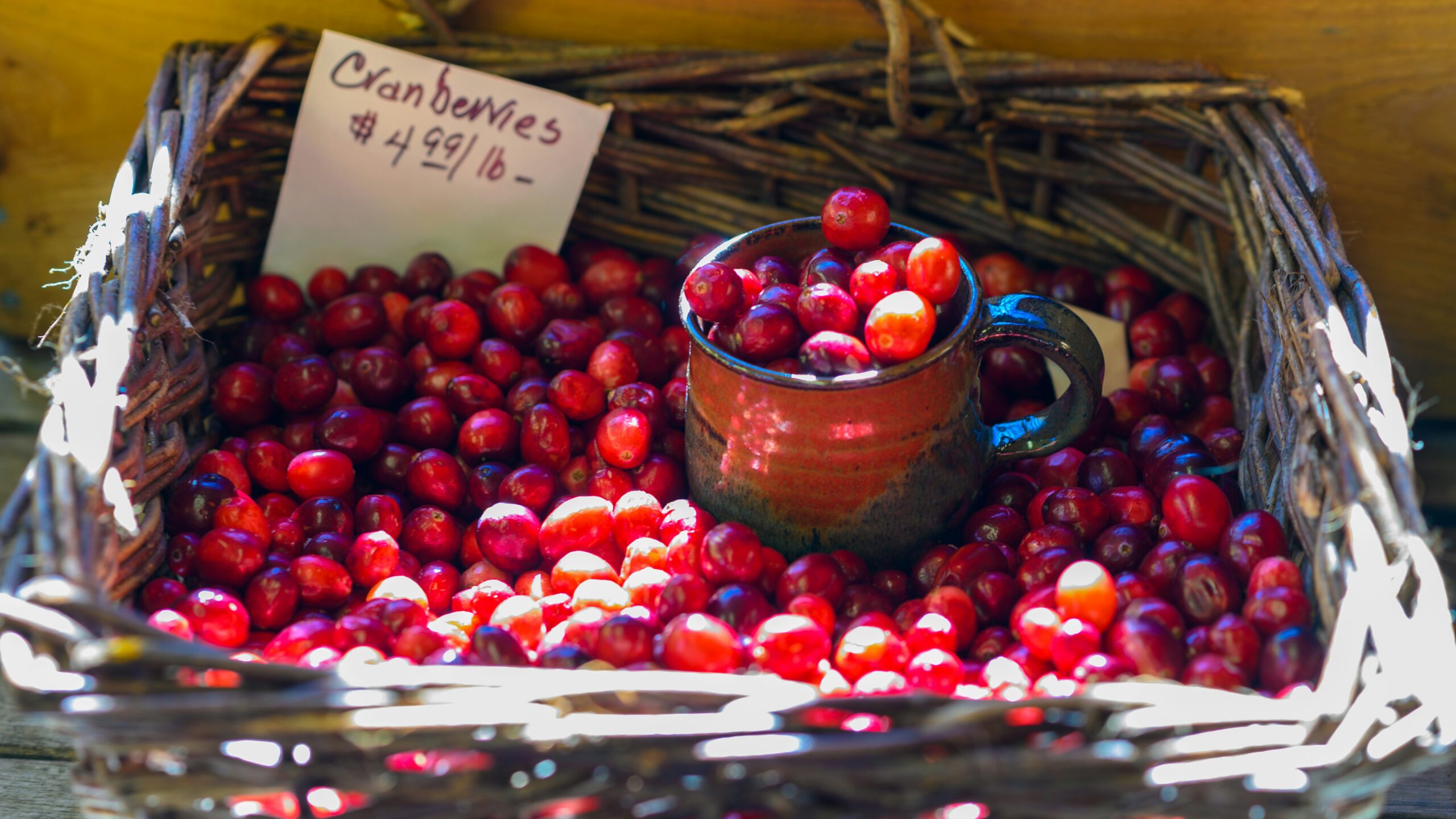
Another group of interest has to do with elements with antioxidant activity. Most often found within plant species, these compounds confer some degree of individual or multiple physiological impact that further describes the promise of cranberries for human health. The fruit contains strong disease-fighting agents like quercetin. Cranberries are also rich in anthocyanins![]() – a special chemical from which the red color of cranberries comes- and are powerful antioxidants with anti-inflammatory properties.
– a special chemical from which the red color of cranberries comes- and are powerful antioxidants with anti-inflammatory properties.
The unique compounds of cranberries include organic acids. Cranberries have a tart taste due to citric acid and quinic acid, which may offer health benefits. Cranberries in diet can provide antioxidants, support urinary tract health, cardiovascular health, and many other health benefits. In moderation with a meal, cranberries can be a great way to help make your life healthier.
By now, you have heard about the health benefits associated with cranberry. So, you are sold the idea that dietary cranberries are great. However, one question remains to be told. Is cranberry safe? This is a critical inquiry because although generally healthy, different foods can be contraindicated for certain patients. For this reason, it would be interesting to know the safety profile of cranberries.
Cranberries are a comparatively non-harmful fruit, and its eating, particularly in well people, ought not to create genuine reactions. But rarely do cranberries produce different adverse symptoms, particularly in excess. So, if you ever eat cranberries, watch for side effects. Adverse effects observed in studies are excessive urination![]() and stomach hyperacidity
and stomach hyperacidity![]() . Associated symptoms prompted cessation of cranberry treatment.
. Associated symptoms prompted cessation of cranberry treatment.
This is why cranberries should be eaten in sufficient quantity. Cranberry products need to be better defined in terms of dosage recommendations. If taking cranberry supplements, always follow the dosages outlined in the package. For the juice doses, 4 to 32 ounces/day![]() (3 divided doses with meals daily).
(3 divided doses with meals daily).
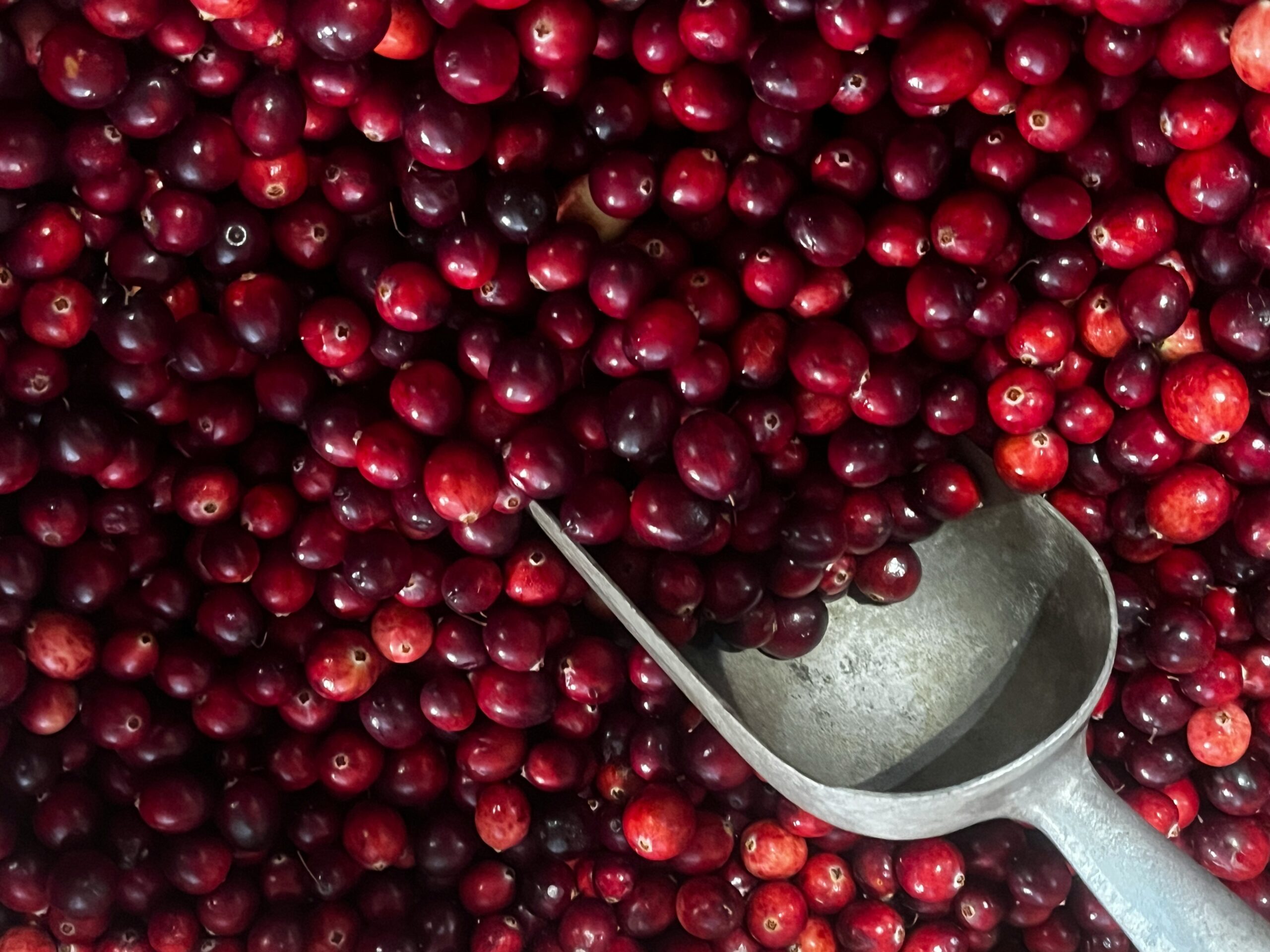
Because of the impact of cranberry juice on the composition of urine, the risk of kidney stones during therapy has been raised in other studies. Cranberry juice has been suggested to increase the risk of urate stones. There was, at most, a moderate positive impact on calcium oxalate nephrolithiasis and urate nephrolithiasis risk and a mild negative impact on brushstone nephrolithiasis risk for cranberries. This suggests that cranberry therapy should be avoided in those with established urinary tract stones.
Some ingredients have harmful effects, so pregnant women should be cautious about their food intake. As for this example, no data proves how safe or harmful cranberries are when pregnant with you or your baby. Little research has been done on the subject, but some studies suggest cranberries are low-risk. It is still unknown whether cranberry juice is safe or harmful during lactation. Thus, we suggest that this category of patients inquire with their physician whether or not cranberry can be incorporated into their diet.
In addition, you could also be on guard to whether the Drug you take will change the effect of food by other food-induced. Cranberries can interfere with the action of some medicines. Some of the ingredients in the fruit have structural similarities to estrogens and may have an estrogenic or anti-estrogenic effect, for example. Cranberry juice can also impact the absorption of drugs. So, if you take any medications, ask your doctor if you can take cranberry products.